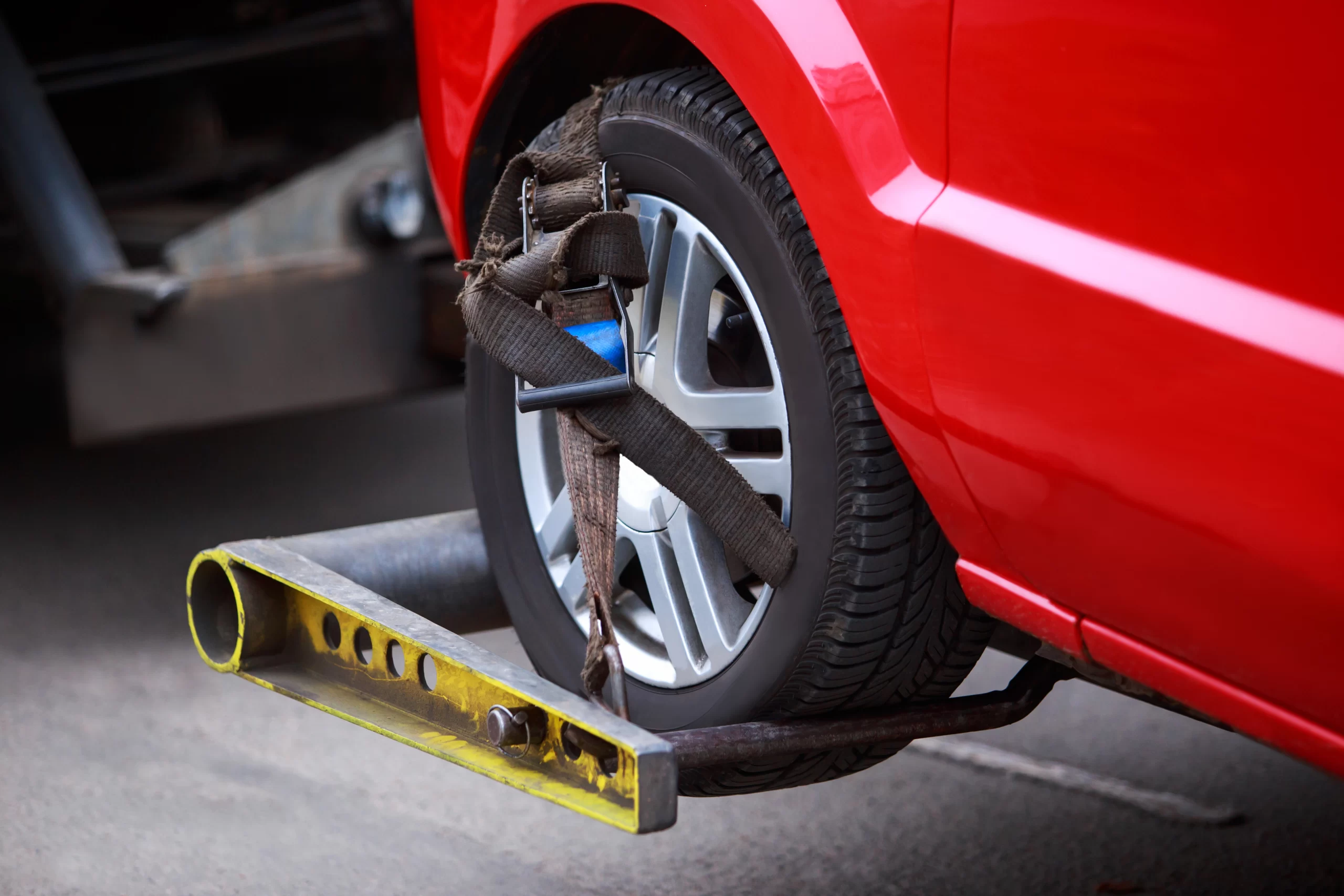This week in Brooklyn, chaos erupted when a man stole a tow truck that was in the middle of repossessing his own car. He sped away with both vehicles still attached, smashed into parked cars, and fled the scene. What might sound like a wild viral story actually shows how one reckless act can lead to felony charges, civil lawsuits, federal penalties, and denied insurance coverage in New York.
Under New York Penal Law §155.30(8), stealing a tow truck is grand larceny in the fourth degree, a Class E felony. The law treats any motor vehicle theft over $100 in value as a felony, and since every tow truck exceeds that, nearly every such theft qualifies. If the thief also damages property, prosecutors can add criminal mischief charges under Penal Law §145.00, which penalizes intentional property damage. Depending on how severe the damage is, that charge can rise from a Class A misdemeanor to a Class D felony.
If the stolen tow truck crosses state lines, the case can move into federal court. The Dyer Act (18 U.S.C. §2312) makes it a federal crime—punishable by up to ten years in prison—to transport a stolen vehicle between states. Federal courts have interpreted “stolen” broadly, covering any taking meant to deprive the owner of possession or benefit, even temporarily.
Beyond the criminal side, there is serious civil exposure. Under New York’s common-law tort of conversion, the tow-truck company can sue for the full market value of the stolen truck, lost business income, and repair costs. Courts measure damages by the vehicle’s value at the time of the theft, plus any proven losses from downtime or replacement costs. Even if the repossession itself was disputed, taking the tow truck is a separate wrongful act that cannot be justified.
Repossession law also adds complications. Under UCC §9-609, creditors may repossess collateral only if they can do so peacefully—without violence or public disturbance. Once a confrontation or theft occurs, the repossession must stop and shift to legal process. New York courts define “breach of the peace” broadly to include acts that disturb public order or are likely to cause violence. Taking the tow truck by force creates exactly the kind of breach that the law is meant to prevent.
Tow-truck operations are also regulated heavily. Under 15 N.Y.C.R.R. §78.22, repossessors must notify police within 24 hours and deliver the vehicle’s plates to the DMV. If company equipment becomes involved in a crime, authorities can investigate whether licensing or safety rules were violated. The New York Department of State can suspend or revoke a license under General Business Law §79 for “incompetence or untrustworthiness,” which could permanently shut down a towing business. Federal motor-carrier laws may also apply if the stolen vehicle crosses state lines, creating additional violations.
Insurance coverage becomes another major issue. Tow trucks are usually covered under commercial auto policies that include liability protection for injury, property damage, and “on-hook” coverage for vehicles being towed. But nearly every policy excludes losses caused by criminal acts. If a stolen tow truck causes a crash, the insurer can deny payment for all resulting damage, claiming the theft happened outside normal business operations. Victims may have to turn to their own uninsured-motorist or collision coverage while insurers fight over responsibility. Even the tow company could face denied coverage if it failed to secure the vehicle properly or left keys accessible.

When a tow truck is stolen during repossession, the fallout is enormous. The thief faces felony prosecution and possible federal prison time. The towing company faces the loss of expensive equipment, possible license suspension, and higher insurance premiums. Victims and nearby property owners are left dealing with damage and complex insurance disputes.
The theft also disrupts lawful lien enforcement under UCC Article 9, turning a routine civil procedure into a public-safety crisis. At The Platta Law Firm, we represent people injured or financially harmed in tow-truck crashes, repossession disputes, and other commercial-vehicle incidents.
When negligence or criminal acts cause injuries or property damage, we make sure victims are compensated for every loss. If you’ve been injured in an accident, don’t wait. Call us 24/7 or contact us through our website or live chat to speak directly with an experienced attorney at The Platta Law Firm. We fight for injury victims across New York and will help you get the justice and compensation you deserve.


